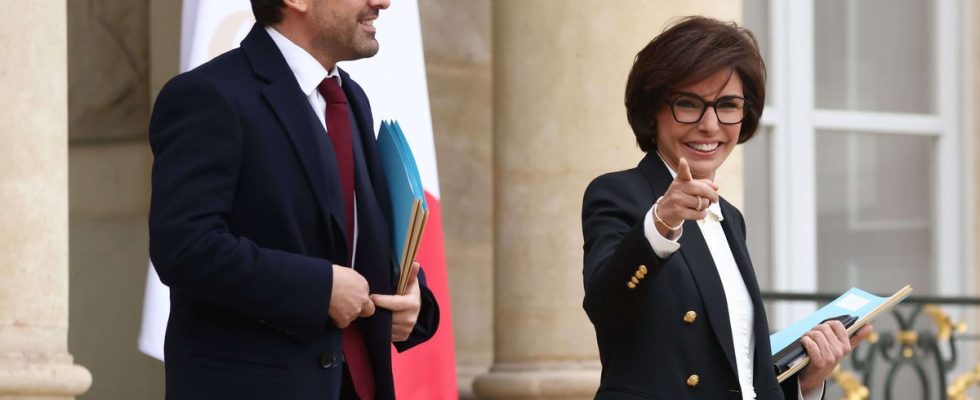Some will see a parallel, others a simple coincidence. For her first steps at the head of the Ministry of Culture, Rachida Dati used the same words last week as John Paul II during his first speech as pope: “Do not be afraid”. Before his surprise appointment, no one knows if the ex-magistrate invoked any divine help. But the former Republican executive, who will be present this Wednesday in the Council of Ministers, will have to achieve the feat of fitting into a costume naturally not cut out for her, while reassuring her administration and those involved in culture. Hence our question, a bit provocative: can you be a good minister when you know (almost) nothing about the field?
Being a specialist in your portfolio is not an essential quality to make a good minister. It is not us who say this, but Frédéric Mitterrand, one of Rachida Dati’s predecessors on rue de Valois. “She doesn’t know anything about it but it doesn’t matter,” commented Friday on RTL Frédéric Mitterrand, who joined the Fillon government when Dati left in 2009. The qualities? Above all, you need to know how the State works and have competent and capable people around you, hence the importance of having a top-quality cabinet director and a high-quality team.”
A non-specialist more likely to succeed?
And counter-intuitively, not knowing oneself “offers better chances of becoming a good minister,” estimates Daïc Audouit, editorialist on France Info TV, interviewed by 20 minutes. It allows you to have a fresh perspective. Being a minister means above all being able to influence your administration. Afterwards, of course, if he does not work and if he does not take ownership of the files, the minister becomes hostage of his administration.”
So, position specialist or political strategist? Between the two profiles, the heart of the executive swings. For Michel Lascombe, professor of constitutional law and expert on the Fifth Republic, the latter – the political profiles – have a greater impact on people’s minds than the former – the specialists. “In Culture, we can cite Jack Lang as an emblematic minister. He certainly wrote a thesis on the State and the theater, but he was a law professor, and therefore not a specialist in the field.”
Depending on the portfolios, the expert profiles can vary, reports Michel Lascombe. “If you appoint a magistrate or a lawyer, things can get stuck. Under Mitterrand, with Jacques Chirac Prime Minister, the Minister of Agriculture François Guillaume was the former president of the FNSEA. Once a minister, the dialogue with the other unions was tense.”
Experts who lack “political weight”
Only one of the government portfolios mainly brings together specialists, specifies Michel Lascombe: the Ministry of Sports. Under Emmanuel Macron, Laura Flessel, Roxana Maracineanu and Amélie Oudéa-Castéra today, are three former professional athletes. In the past, David Douillet, Jean-François Lamour and Alain Calmat have held the position. “But the emblematic minister is Marie-George Buffet, who was not sporty,” says Daïc Audouit. It’s proof that you can succeed without being a specialist.”
To be an expert or not to be, that is the question. In the first Borne government, specialists “lacking political weight” fell quite quickly (the emergency physician François Braun to Health, the CEO of the Red Cross Jean-Christophe Combe to Solidarités, the magistrate Isabelle Rome to Equality between women and men).
In the past, political profiles have also failed (Bachelot for Culture, Arnaud Montebourg for Productive Recovery, etc.). “When the minister is considered good, I have the impression that public opinion doesn’t care a little about this game of musical chairs,” says Michel Lascombe. On the communication side, a non-specialist minister will also be appreciated, when he recognizes his faults without burdening his administration. In the short term, “the challenge for Rachida Dati is to not fall into the same trap as Fleur Pellerin, who admitted not having read Modiano,” recalls Daïc Audouit. But, is it serious? »

